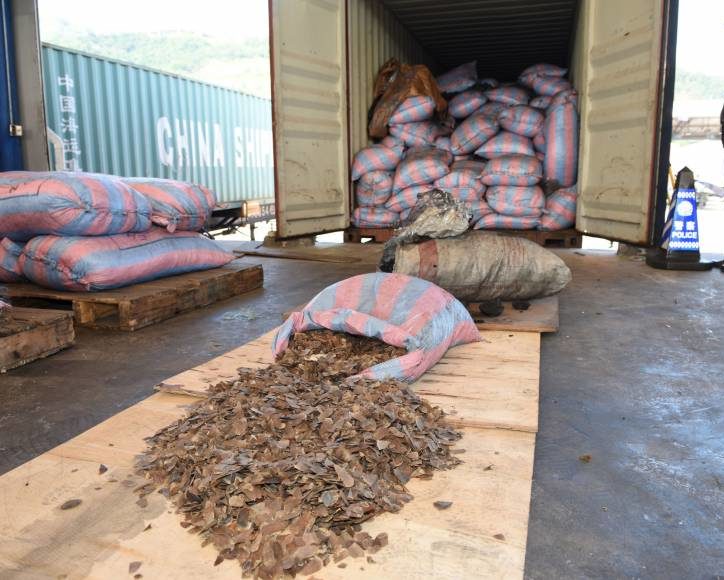
Minister of Environment, Ibrahim Usman Jibril, on Thursday disclosed that the ministry has commenced probe of alleged export of Pangolin scales worth $450 million from Nigeria to Japan.
The animal scales put at about 7,100 kilograms by the Japanese Customs Service was said to have originated from Nigeria.
Pangolin is among the endangered species protected by the Convention on International Trade in Endangered Species of Wild Fauna and Flora (CITES), to which Nigeria is a signatory.
The Minister in a statement, signed by the Director of Press, Federal Ministry of Environment, Sagir Mohammed, in Abuja refuted the allegation of the export described as the second highest of its kind.
Jibril argued that scales of the endangered animals could not have originated from the country stressing that Pangolins were near extinction in the country.
According to statement, it was very unsettling when the minister received the information that the Hong Kong Customs made the discovery in a container at the Tsing Yi Cargo Examination Compound, and mentioned Nigeria as the source.
“The Ministry has initiated the investigation of the reported illegal trade by communicating officially with the Hong Kong CITES Management Authority with a view of furnishing us with the documents that will be forwarded to INTERPOL for further investigation. Nigeria is being used as a transit route for illegal wildlife trade and the image of our nation is being severed,” the statement said.
The Minister further stated that Nigeria signed and ratified the CITES in 1974 and to give municipal credence to this Convention, Nigeria promulgated the Endangered Species (Control of International Trade and Traffic) Decree No.11 in 1985 now enacted as Endangered Species Act 2016.
While stating that Pangolin is a highly protected an endangered species listed on Appendix I of the CITES, as well as on Schedule I of the National Endangered Species Act, 2016, Jibril however noted that the ministry was partnering with the Interpol to launch probe into the allegation.
“CITES is the pre-eminent global legal instrument for regulating international trade in wild animals and plant. CITES objective is to ensure that International trade in wild fauna and flora does not compromise the protection of endangered species, hence the illegal trade in this species and its derivatives are absolutely prohibited,” he stated.
Copyright Ships & Ports Ltd. Permission to use quotations from this article is granted subject to appropriate credit given to www.shipsandports.com.ng as the source.